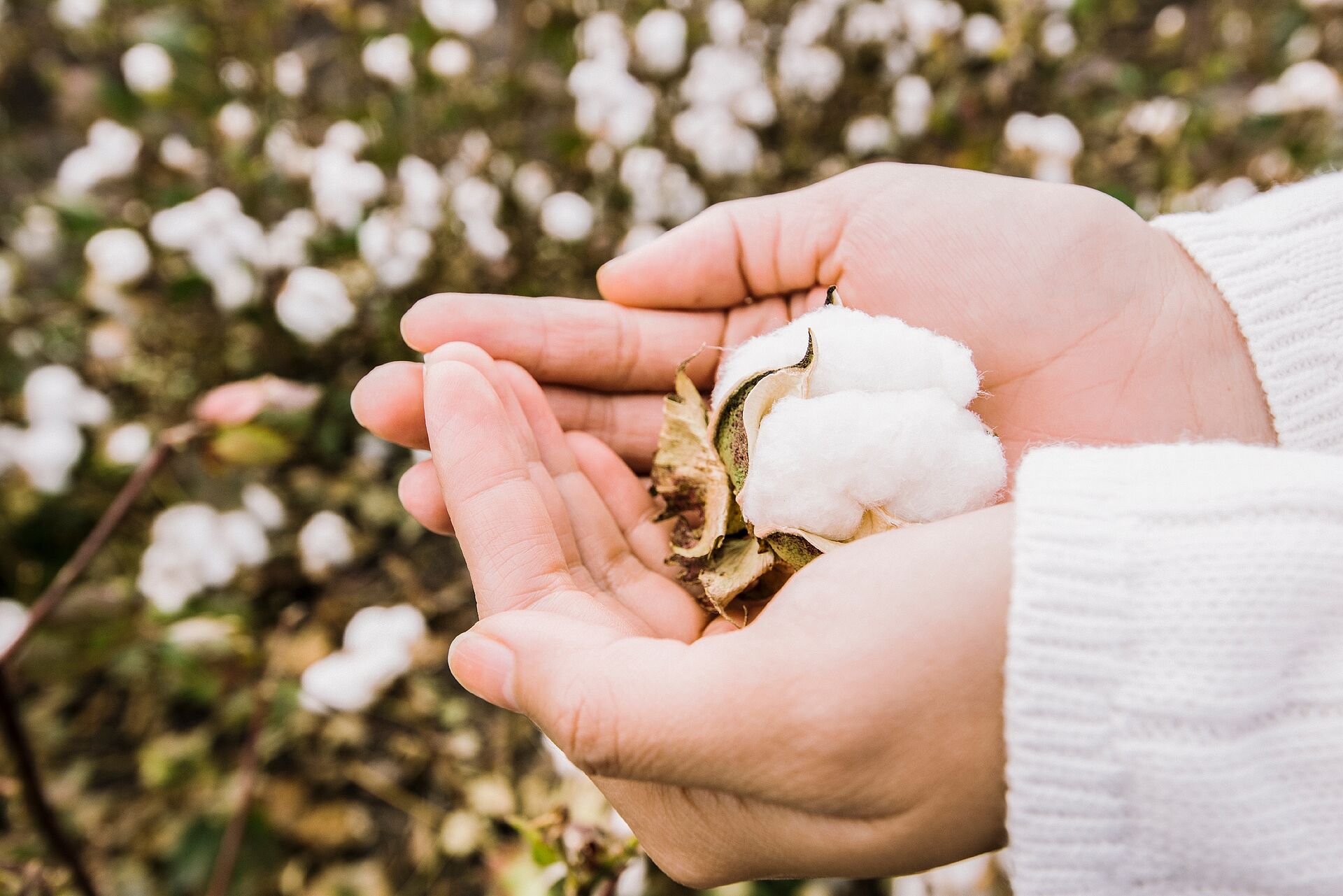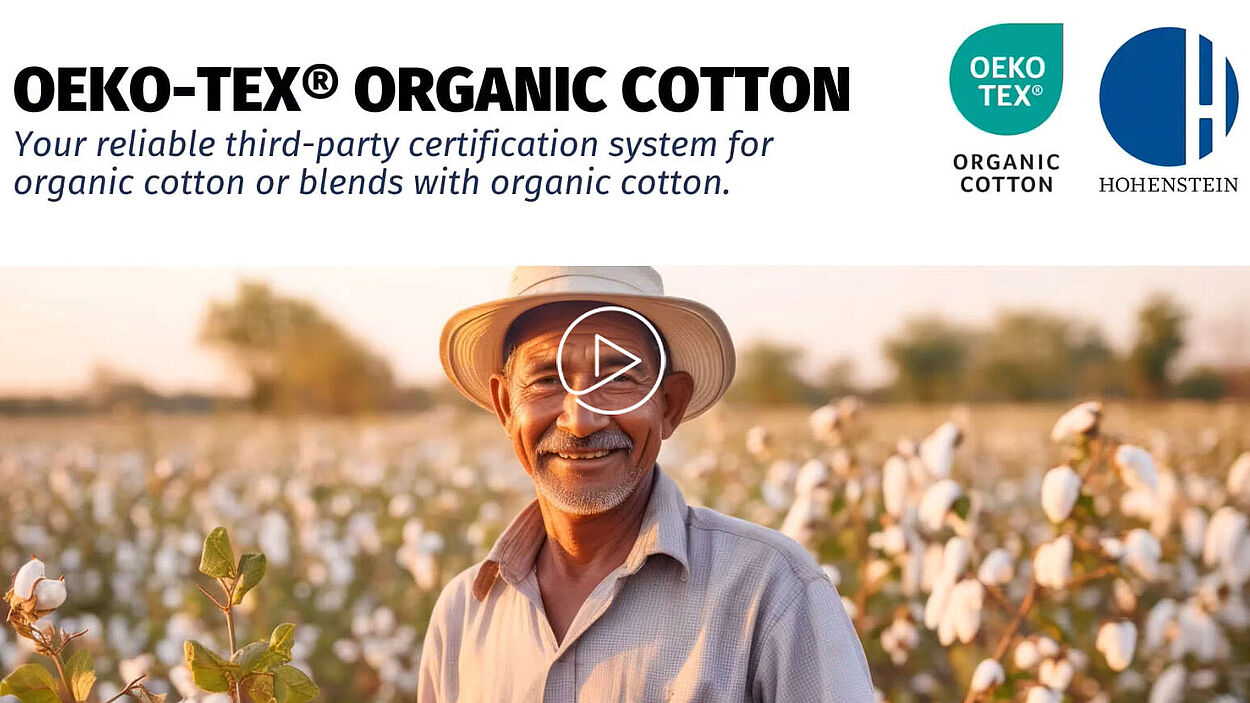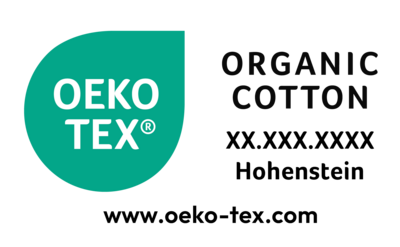
What is ORGANIC COTTON?
OEKO-TEX® ORGANIC COTTON is a globally uniform, independent testing and certification system for textile raw, intermediate and end products of all processing stages, as well as accessory materials.
Further specifications
Testing and certification according to OEKO-TEX® ORGANIC COTTON involves the following aspects and parameter:
- Supply chain traceability to the field (cultivation)
- Genetically modified cotton (qualitative and quantitative) and numerous pesticides to prevent mixing with conventional cotton
- Testing for harmful substances:
- Legally prohibited and regulated substances
- Chemicals whose harmful effects are known but not legally regulated
- Substances for which a harmful effect is likely
How can ORGANIC COTTON support you?

Certification of your products in line with OEKO-TEX® ORGANIC COTTON provides a number of useful aspects that facilitate your operational quality assurance as well as communication towards stakeholders along your supply chain and consumers:
- A detailed report and a certificate as proof of the successful inspection of your textile products for harmful substances and their origin in organic farming.
- Transaction certificates to maintain supply chain traceability.
- A label to communicate the safety of your product to consumers and your business partners and to set yourself apart from the competition at the point of sale.
- Cost savings through the OEKO-TEX® modular system - certificates for input materials are recognised at subsequent production stages, limiting the need for re-testing.
- Transparency, fraud prevention and (legal) integrity through digital transaction certificates on the TextileGenesis platform, which enables seamless documentation and central consolidation of physical goods movements and certification data.
- Free listing of your certified product range and company in the OEKO-TEX® Buying Guide
Basic facts
Validity
An ORGANIC COTTON certificate is valid for one year and can be renewed up to three months before it expires.
Target group
- Producers of raw cotton
- Any manufacturer or reseller of textile materials, finished goods or accessories - from any stage of processing - throughout the textile chain
Requirements / Label options
Issued certificate & label:
OEKO-TEX® ORGANIC COTTON
- Mention of “Organic Cotton”
- “GMO not detectable” can be mentioned in the certificate as customer request
Special laboratory tests in addition to the basic sope of testing:
- GMO test
- Fibre analysis
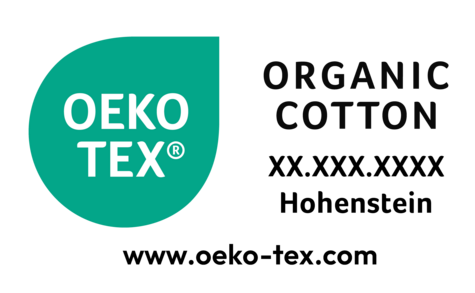
Issued certificate & label:
OEKO-TEX® ORGANIC COTTON BLENDED
- Mention of “Organic Cotton”:
Organic cotton ≥ 70% is mentioned in the certificate - “GMO not detectable” can be mentioned in the certificate as customer request
Special laboratory tests in addtion to the basic scope of testing:
- GMO test
- Fibre analysis
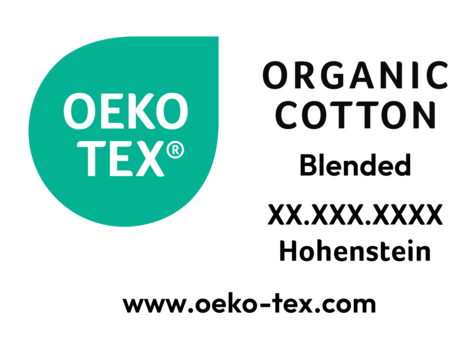
Issued certificate & label:
OEKO-TEX® STANDARD 100
- Mentioning “organic cotton” only possible if:
- Organic cotton is certified according to OEKO-TEX® ORGANIC COTTON
- Organic cotton is < 70% (mentioned in the certificate)
- “GMO not detectable” is not mentioned
Special laboratory tests in addition to the basic scope of testing:
- No GMO testing as already OEKO-TEX® ORGANIC COTTON certified
- Fibre analysis
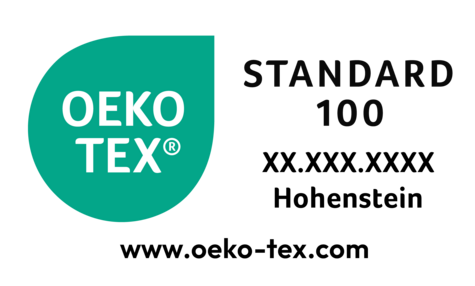
Certification process
- Application
Please complete the application form and send it to us. - Sample material & documents
Together with the completed application form, we need your representative sample materials for testing and relevant proof documents from you. - Analytical testing & checking of documents
We test your sample material in our labs. At the same time, we verify the provided documents. - On-site audit
During an on-site audit at your premises, our OEKO-TEX® experts will confirm all certification details. Ideally, the audit will take place while the laboratory tests are being carried out, but in any case before the certificate is issued. - Issue of certificate & label
If your sample materials and provided documents meet the stipulated criteria, you will receive a detailed report from us, and we will issue the ORGANIC COTTON certificate and label for you.
Your benefits at a glance
- Reassurance of the promised quality of your products with the independent ORGANIC COTTON label
- Tracking of material usage: from input control to output control
- Third-party proven cultivation of organically produced raw materials
- Valuable contribution to environmentally friendly and socially responsible manufacturing of textiles
- Transparent documentation of your product claims by means of an easy-to-understand label
